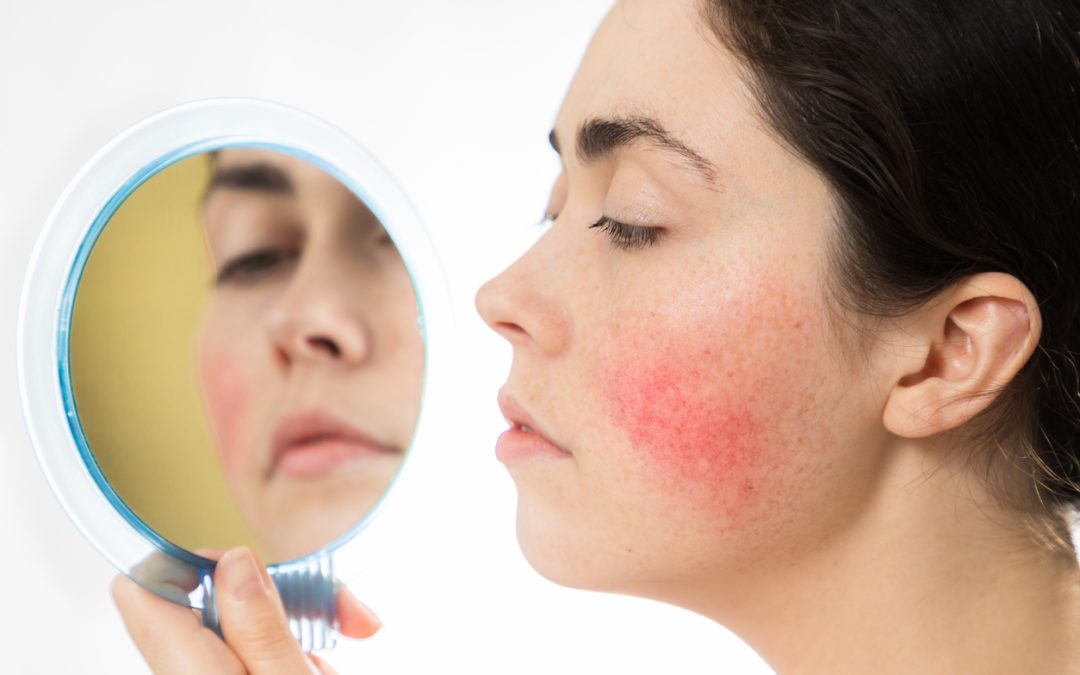Rosacea is a chronic skin condition characterized by redness, flushing, and in severe cases, inflammatory acne-like lesions. It affects millions of people worldwide, often leading to psychological distress due to its visible nature. While conventional treatments like topical antibiotics, laser therapy, and oral medications provide relief, they may not be enough for every patient. Recent advances in biotechnology have opened doors to more innovative treatments such as stem cell therapy and gene therapy. These promising approaches target the root causes of Rosacea Treatment in Dubai and aim to offer long-lasting or even permanent solutions.
In this article, we will compare stem cell therapy and gene therapy, both revolutionary approaches, and evaluate their potential in treating rosacea.
Understanding Rosacea and Its Challenges
Before diving into the innovative treatments, it's essential to understand the underlying causes of rosacea. Rosacea is often linked to various triggers, including genetics, environmental factors, immune system irregularities, and abnormalities in the vascular system of the skin. These factors contribute to the chronic inflammation and redness that define the condition. While some treatments manage the symptoms, they rarely address the root causes, which is where stem cell therapy and gene therapy come into the picture.

What is Stem Cell Therapy?
How Does Stem Cell Therapy Work?
Stem cells are unspecialized cells that can transform into different cell types and possess the ability to self-renew. When used in therapies, they help regenerate damaged tissues and reduce inflammation. In the case of rosacea, the hope is that stem cells can reduce the abnormal vascular responses and inflammation that cause the visible symptoms of the disease.
There are different types of stem cells used in treatments, including:
Mesenchymal Stem Cells (MSCs): These cells, derived from bone marrow, fat, or umbilical cord tissue, are known for their anti-inflammatory properties. They can modulate the immune response, reduce inflammation, and repair damaged skin tissue.
Induced Pluripotent Stem Cells (iPSCs): These stem cells are created by reprogramming adult cells to act like embryonic stem cells. They can transform into any cell type, including those necessary for repairing damaged skin tissues.
Benefits of Stem Cell Therapy for Rosacea
Stem cell therapy offers several potential benefits for rosacea patients:
Reduced Inflammation: By introducing stem cells into the skin, it may be possible to reduce the chronic inflammation responsible for rosacea flare-ups.
Tissue Regeneration: Stem cells can help regenerate damaged blood vessels and skin tissue, reducing redness and improving skin texture.
Minimized Side Effects: Compared to traditional medications that may have side effects, stem cell therapy has the potential to be a more targeted treatment with fewer adverse effects.
Challenges of Stem Cell Therapy
Despite its promise, stem cell therapy is not without challenges:
Cost: Stem cell treatments are still in their early stages, and clinical treatments can be expensive.
Limited Research: While some studies show promising results, there is still a lack of large-scale clinical trials specifically focused on rosacea.
Availability: Not all regions or medical facilities offer stem cell therapies, and the regulatory landscape varies.
What is Gene Therapy?
How Does Gene Therapy Work?
Gene therapy involves modifying or replacing faulty genes to treat or prevent disease. Since rosacea can have a genetic component, gene therapy holds the promise of directly addressing the underlying genetic factors contributing to the condition.
There are two main approaches in gene therapy:
Gene Augmentation: In this approach, new genes are added to a patient’s cells to compensate for dysfunctional or missing genes that might be contributing to rosacea.
Gene Editing: Technologies like CRISPR-Cas9 allow for precise editing of the genome, potentially correcting genetic mutations responsible for rosacea.
Benefits of Gene Therapy for Rosacea
Gene therapy offers several advantages over traditional rosacea treatments:
Targeted Treatment: By targeting the root cause at the genetic level, gene therapy has the potential to offer a more precise and lasting treatment.
Long-lasting Results: Unlike topical treatments that only manage symptoms, gene therapy could provide long-term or even permanent relief by correcting the underlying genetic issues.
Personalized Medicine: Gene therapy can be tailored to an individual’s specific genetic makeup, offering a highly personalized approach.
Challenges of Gene Therapy
However, gene therapy also faces significant hurdles:
Complexity: Gene therapy is a highly complex and delicate process. It requires advanced technology and expertise, which can limit its widespread availability.
Ethical Concerns: Manipulating the human genome comes with ethical implications, and there are concerns about the long-term effects of altering genes.
Cost and Accessibility: Like stem cell therapy, gene therapy is still in its infancy, and treatments are often costly and not widely available.
Comparing Stem Cell Therapy and Gene Therapy for Rosacea
Both stem cell therapy and gene therapy offer groundbreaking potential for rosacea treatment, but they differ in their approach, application, and stage of development.
The Future of Innovative Rosacea Treatments
While both stem cell therapy and gene therapy offer immense potential, they are not yet mainstream treatments for rosacea. As research progresses, these therapies may become more accessible, affordable, and effective. The future of rosacea treatment will likely involve a combination of advanced biotechnology and personalized medicine, offering hope for millions of sufferers.
As of now, patients should consult with healthcare providers about the best treatment options available and keep an eye on the ongoing clinical trials and research in the field of rosacea treatment. These innovative approaches may soon transform the way we manage this chronic condition, offering long-lasting relief and potentially even a cure.
4o
